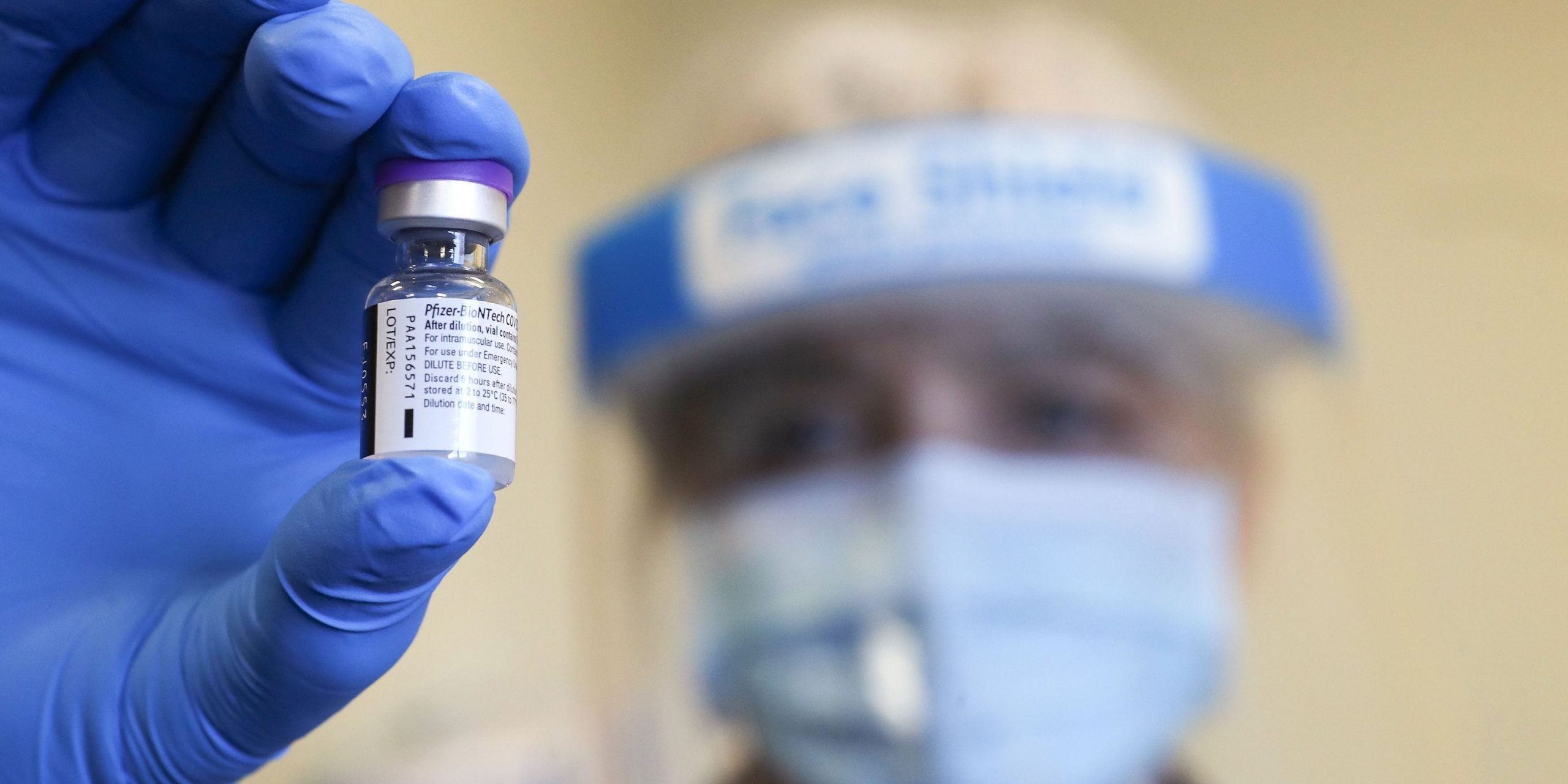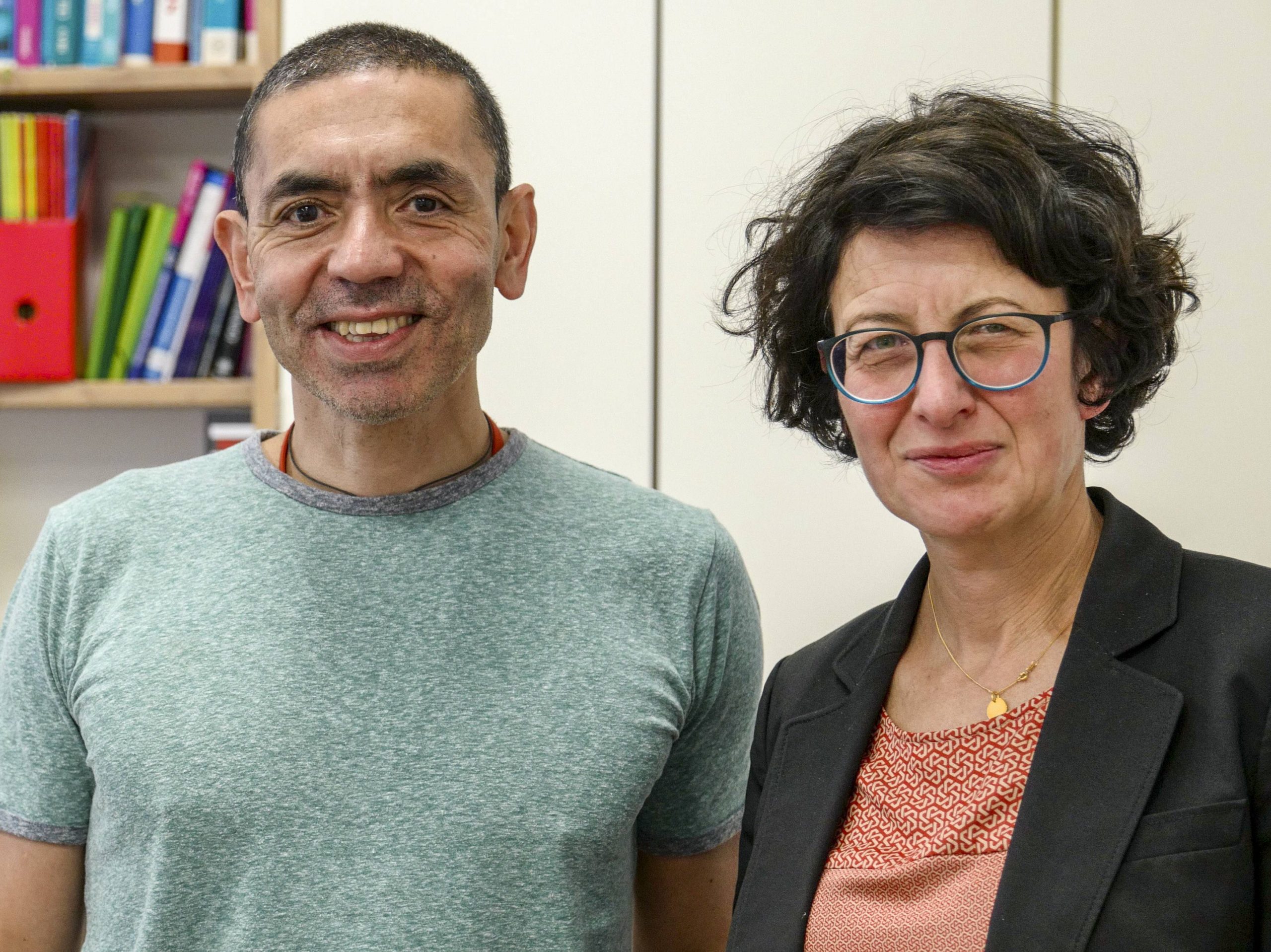
CHRIS JACKSON/POOL/AFP via Getty Images
- Pfizer released new data from a key study, showing lasting benefits for its COVID-19 vaccine.
- The two-dose vaccine was 91% effective at preventing symptomatic cases of COVID-19.
- Data from study volunteers in South Africa suggests the shot also fights concerning variants.
- See more stories on Insider's business page.
Updated results from Pfizer's late-stage study of its coronavirus vaccine show the two-dose shot's overwhelming protection is holding up six months after the second dose.
The study has tallied 927 symptomatic cases of COVID-19 among just over 46,000 trial volunteers. People who got placebo shots accounted for 850 of those cases compared to 77 illnesses among those who received the vaccine, which was developed by Pfizer and BioNTech. That translates to 91.3% efficacy, the companies said in a statement on Thursday.
Additionally, the shot was 95% effective at preventing severe COVID-19, as defined by the US Food and Drug Administration.

Courtesy Pfizer
The end result is unambiguous good news: Six months after early trial participants got their second doses of the jab, the protection from Pfizer's vaccine is strong and is holding up.
Pfizer and BioNTech also said they didn't identify any safety concerns with the vaccine after following trial participants for a longer period of time.
Pfizer and BioNTech first put out data showing the shot was highly effective against COVID-19 in November, and then won emergency authorization for the vaccine in December. Almost 77 million doses of the shot have since been given in the US, according to data from the Centers for Disease Control and Prevention.
The trial also provides the first clinical data suggesting Pfizer's vaccine works against B.1.351, a variant first identified in South Africa that has caused some concern among virologists. Petri-dish testing showed leading COVID-19 vaccines produced less of an immune response against this variant, and the COVID-19 vaccine from Oxford University and AstraZeneca faltered against it in a human trial.

Stefan F. So¤mmer via www.imago-images.de/Reuters
Pfizer's study enrolled 800 participants in South Africa, and nine of them came down with COVID-19. All nine of the cases happened in the placebo group. Researchers sequenced those strains and found six of the nine were the B.1.351 strain.
Pfizer CEO Albert Bourla said in a statement that the extended follow-up time and efficacy against the B.1.351 variant "provides further confidence in our vaccine's overall effectiveness."
Pfizer shared the updated analysis in a press release. These newest results have yet to be published in a peer-reviewed medical journal.
Dit artikel is oorspronkelijk verschenen op z24.nl
